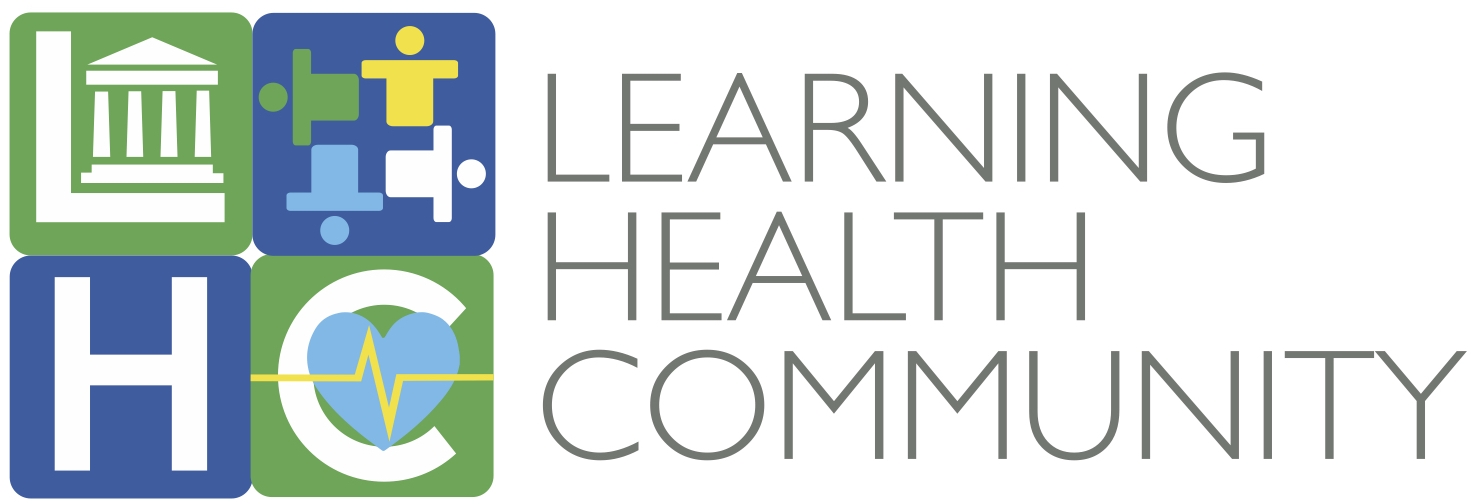Other than “Here’s a guaranteed cure, it’s painless, it’s instant, and it’s free,” what could your doctor say to you to give you the most peace of mind at this scary and emotional moment of uncertainty?
How about, “I can make a treatment recommendation informed not only by the latest clinical trials, but also by the real-world health experiences over time of every patient like you who has had this illness -- and in turn I can tell you with a specified range of confidence which treatment has the greatest chance of success for a patient specifically like you…”?
Wouldn’t that be a confidence-inspiring relief?
A Learning Health System (LHS) gets pretty close to that approach (and much more) to health care and health, putting precisely that type of timely and actionable knowledge, based on the real-world experiences of millions of patients, in the hands of clinicians, patients, and all other health care stakeholders. Harnessing the power of such unprecedented knowledge at our fingertips – when it’s needed and where it’s needed, and in the form most useful to the person using it – we can make better informed decisions that lead to saving lives, improving health, and transforming our health care system into one that rapidly learns and continuously improves.
The LHS vision is about leading health care and health to “big data” to empower all stakeholders in health care to “learn large”. While not a panacea for the spiraling costs, poor outcomes, outdated public health infrastructures, alarming patient safety issues, and significant waste on treatments that simply do not work, the LHS vision is grounded in a recognition that many of these problems that cost lives and dollars can be seen in part as symptoms of a disease plaguing health care systems around the world. That disease is a failure to learn systemically, routinely, and at scale from millions of lifetimes of real-world patient experiences now being captured digitally and to rapidly share these lessons in ways that empower patients, clinicians, researchers, public health professionals, and all other health care stakeholders to use these lessons learned to save lives (and dollars) and improve health.
The LHS aims to harness the power of ever increasing amounts of health data captured in digital forms in order to engender ongoing cycles of knowledge generation and curation, tailored feedback, and transformative change. It is grounded in the recognition that two of the least well utilized resources in health care are patients ourselves (everyone will be a patient and/or caregiver) and lessons learnable from our collective health experiences. Such shared data that digitally captures these experiences (in many cases, simply as a byproduct of care delivery) forms the lifeblood of the LHS when it is aggregated, analyzed, and converted to actionable knowledge. This knowledge is then shared with stakeholders who can benefit and learn from it – and ultimately use it to improve health, save lives, revolutionize biomedical research, protect the public’s health, and transform our patient experience.
All stakeholders in the health care system participate in the LHS vision. These stakeholders commit to aligning their tools and interests so that, over time, they can scale up to analyze and respond to system issues in a rapid, continuous process that addresses system failures. An LHS can operate at various scales, from individual care delivery systems to state, national, and even global levels – but the greatest benefits are likely to be attained and most powerful lessons likely to be learned and shared at larger scales. All the components of the LHS can build on each other to solve problems in a multitude of arenas throughout the health care system.
Just as the Internet had transformative impacts on numerous and diverse stakeholders’ ways of working, communicating, and interacting, the LHS promises to have broad and far-reaching impacts on health. The LHS is one infrastructure, serving multiple purposes, being built collaboratively atop a foundation of meaningful use and other health IT investments. In doing so, the LHS holds the potential to transform care delivery by shortening the on-average 17-year gap between knowledge generation and its application, to empower clinicians and patients with knowledge to inform their decisions, and to create a more robust public health and biomedical research infrastructure for the nation.
Video: Patient Activist Regina Holliday Paints the LHS Movement




